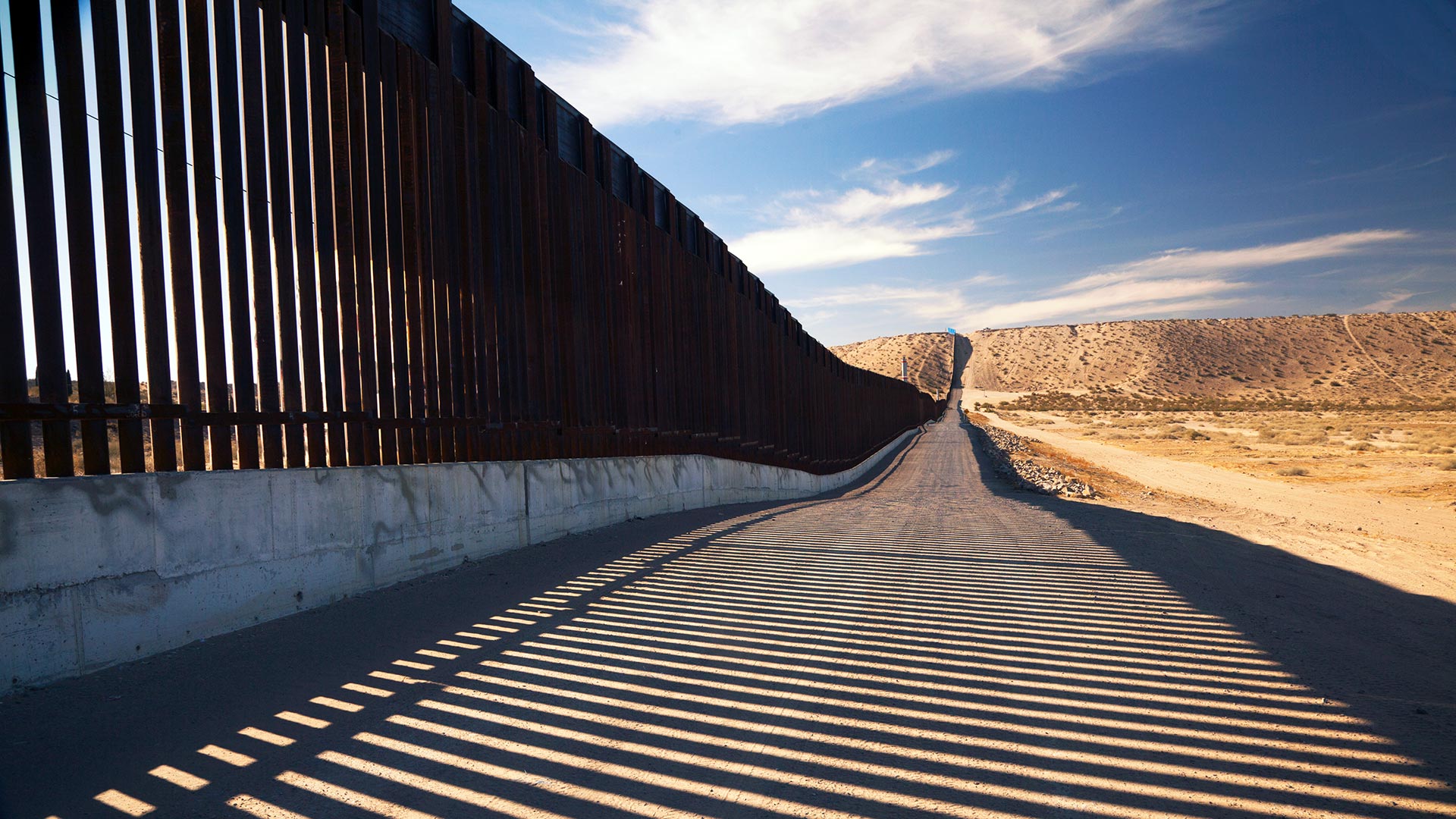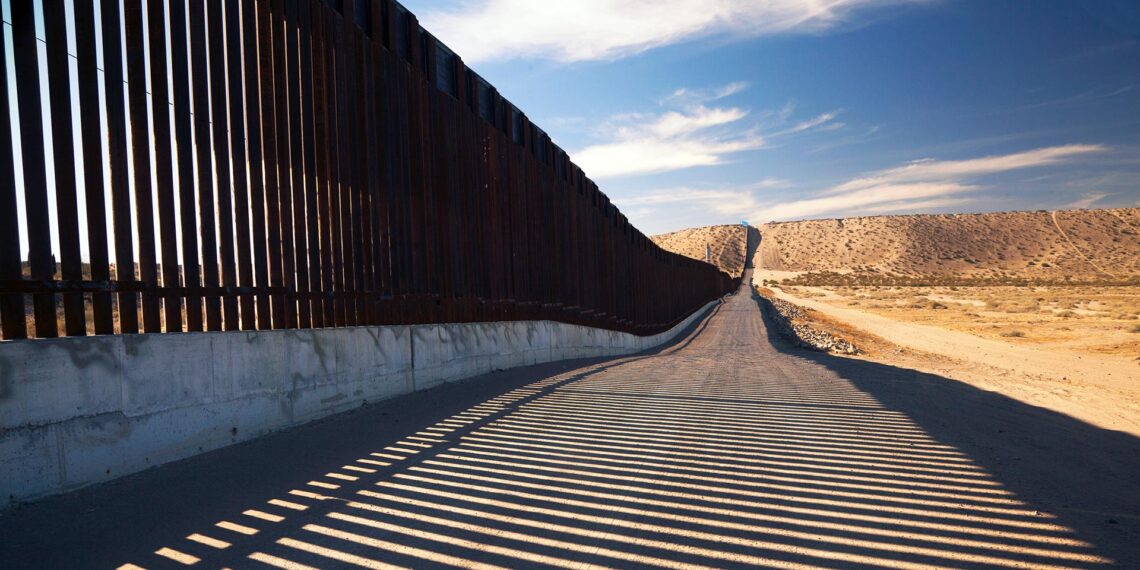[ad_1]

In the wake of legal back-and-forth and conflicting court rulings, Texas law enforcement agencies are gearing up to implement the state’s controversial new immigration law, Senate Bill 4 (SB 4).
The law, intended to empower local law enforcement to arrest individuals suspected of illegally entering the United States, has triggered uncertainty and logistical hurdles for officials across the state.
Terrell County Sheriff Thaddeus Cleveland, whose jurisdiction has more than 50 miles of the U.S.–Mexico border, discussed the practical difficulties faced by many sheriffs. Although he supports the law in theory, he admitted that his department lacked the resources necessary for practical enforcement, citing the absence of transportation means and limited jail capacity.
The legal issues surrounding SB 4 have also added to its complexity.
While the Supreme Court initially allowed the law to take effect, it was halted soon after by the 5th U.S. Circuit Court of Appeals. The law was in effect for just nine hours.
This legal limbo has left law enforcement agencies grappling with uncertainties about their responsibilities and legal liabilities.
According to Jamie Longazel, a political science professor at John Jay College of Criminal Justice, the involvement of state and local authorities in immigration matters presents various challenges regarding jurisdiction and coordination with federal agencies.
“There’s so much that we don’t really know what it’s even going to look like. We don’t have precedent for a state doing this. It kind of changes the game,” Longazel told The Texas Tribune. “Migration is about someone coming from one country into another and so two national governments deal with the question. Now you’re having Texas and Mexico deal with this, potentially.”
While proponents of SB 4 argue for the necessity of enforcing immigration laws, critics, including the Biden administration and immigrant rights organizations, say that the law infringes on federal authority and could lead to racial profiling and discrimination.
Amid the controversy, the Texas Department of Public Safety (DPS) is preparing to enforce the law under its blanketed Operation Lone Star. However, it is still unclear how the DPS will follow through.
Representative David Spiller, a co-author of SB 4, anticipated that enforcement would primarily occur within 50 miles of the border. However, he feared that the law’s applicability across all 254 counties in Texas could present challenges for those farther from the border.
“They shouldn’t be going out interrogating people otherwise saying, hey, you look like a migrant — when did you cross and where did you cross?” Spiller said. “Those conversations should not be happening.”
Officials with the Texas Police Chiefs Association (TPCA) also weighed in on the matter.
“We intend to advise our members to consult with their local legal counsel for guidance,” TPCA President Albert Garcia said. “Since Senate Bill 4 grants discretion, it is imperative for each jurisdiction to assess the best course of action based on their unique circumstances.”
In response to SB 4, various law enforcement agencies have expressed divergent approaches.
While some sheriffs, like those in Tarrant and Montgomery counties, have signaled readiness to enforce the law, others, including Fort Worth Chief of Police Neil Noakes, emphasized their commitment to community policing and prioritizing public safety over immigration enforcement.
“Although we will always follow the law, the primary responsibility for immigration enforcement and border protection should be left to our federal and state partners,” Noakes said. “In light of the vibrant growth of our city and the diversity of our communities, our department remains unwavering in its commitment to community policing and making Fort Worth the safest city in the country for all who call this community home.”
Noakes later dispelled any confusion that he would not enforce the law in a follow-up statement.
A total of 139 sheriffs from across the state even signed a letter addressed to the governor in support of the bill, declaring it a remedy to the ongoing border crisis.
“Our unsecured border is directly responsible for numerous criminal victimizations of citizens and non-citizens as well as numerous human rights violations,” the letter read.
Large agencies in the state, such as the San Antonio and the El Paso police departments, stated that they will comply with the law, despite ongoing staffing shortages.
The Bexar County Sheriff’s Office, although disagreeing with the law, also affirmed that they would establish an enforcement policy if the ruling is upheld.
Still, enforcement remains a key issue in the debate.
Sheriff Skylor Hearn, executive director of the Sheriff’s Association of Texas, said the law would be too difficult to enforce due to the difficulty in obtaining probable cause.
“There’s no way to get probable cause on the side of the road,” Hearn explained. “The only way the second offense will ever be filed is someone who was arrested for something else — DWI, burglary, fighting in public, whatever. They go to jail, they’re fingerprinted, and that biometric record makes it up to the federal government and then comes back down. … That’s the only way you can make that case.”
University of Houston political scientist Brandon Rottinghaus agreed. “That’s the real kind of conundrum that law enforcement has, where they don’t know how to police this precisely,” he said.
Daniel Morales, associate law professor at the University of Houston Law Center, echoed these concerns, claiming the law “will be a mess, very clearly, to enforce. It’s very clear that Greg Abbott wants to enforce the law so he can get lots of photo ops and opportunities, but it’s [going to] take a lot of state resources to implement. And I don’t know, in fact, how much appetite and capacity for that the state government actually has.”
Still, Tarrant County Sheriff Bill Waybourn said the law would just give local governments more tools to do “what the federal government won’t” and address the crisis.
“SB 4 is a tool for Texas law enforcement along the border to detain anyone they see crossing into the country illegally,” Waybourn said in a statement. “It is unlikely that law enforcement in North Texas will have knowledge of an individual’s illegal entry status to enforce SB 4, due to this being primarily an on-view offense.”
In response to the Supreme Court’s decision, the Biden administration argued that local and state governments have no legal right to determine immigration policy.
As the legal battle over SB4 continues, the focus remains on its practical implications and the balance between immigration enforcement and community relations. Lawmakers, officials and legal experts are closely monitoring developments.
[ad_2]




